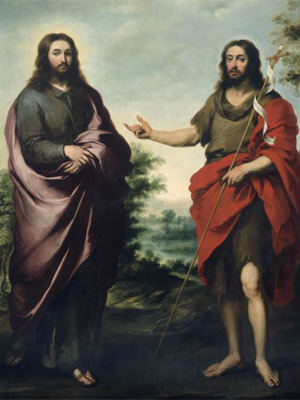Scripture:
Reflection:

When John the Baptist declared of Jesus, “He must increase; I must decrease” (Jn 3.30), he meant that for others to know Jesus, John must move to the background. The Baptist’s words also revealed two inseparable truths: If Jesus is to increase in our lives, we must decrease. For one to happen, the other must occur. These two realities are dependent on each other.
And if we somehow missed the message, the Baptist comes at it from another angle. He describes a wedding procession. Everyone waits in anticipation at the bride’s house for the bridegroom to come and lead his bride back to his own house, accompanied by her bridesmaids, family, and friends. When the best man hears the bridegroom’s voice and the nuptial procession has arrived, he announces that the wedding celebration may now begin. His duty has been completed. John, the best man, makes Jesus known to Israel, the Lord’s covenantal bride. With Jesus’s arrival, the Messianic wedding celebration may begin. In this relationship, too, the bridegroom increases, and the best man decreases.
We may mistakenly believe the way to magnify Jesus is through our worth, our success, and importance, but not through our weakness or brokenness. Yet, this is how God chooses to magnify his worth to us and the world. Mary, a humble girl from an obscure village, proclaimed this truth in her Magnificat: “My soul proclaims the greatness the Lord…” (Lk 1:46.) So too did the Apostle Paul understand this paradoxical truth when he declared, “…when I am weak, then I am strong” (2 Cor 12.10.)
Only when the best man fades to the background, only when the Baptist decreases, is he prepared to announce – in the present tense – that his joy is now full. But he doesn’t stop there. Like all good prophets, he points to us, challenges us to decrease, so that Christ may increase and assume his place at the center of our lives.
Deacon Manuel Valencia is on the staff at Mater Dolorosa Passionist Retreat Center, Sierra Madre, California.
